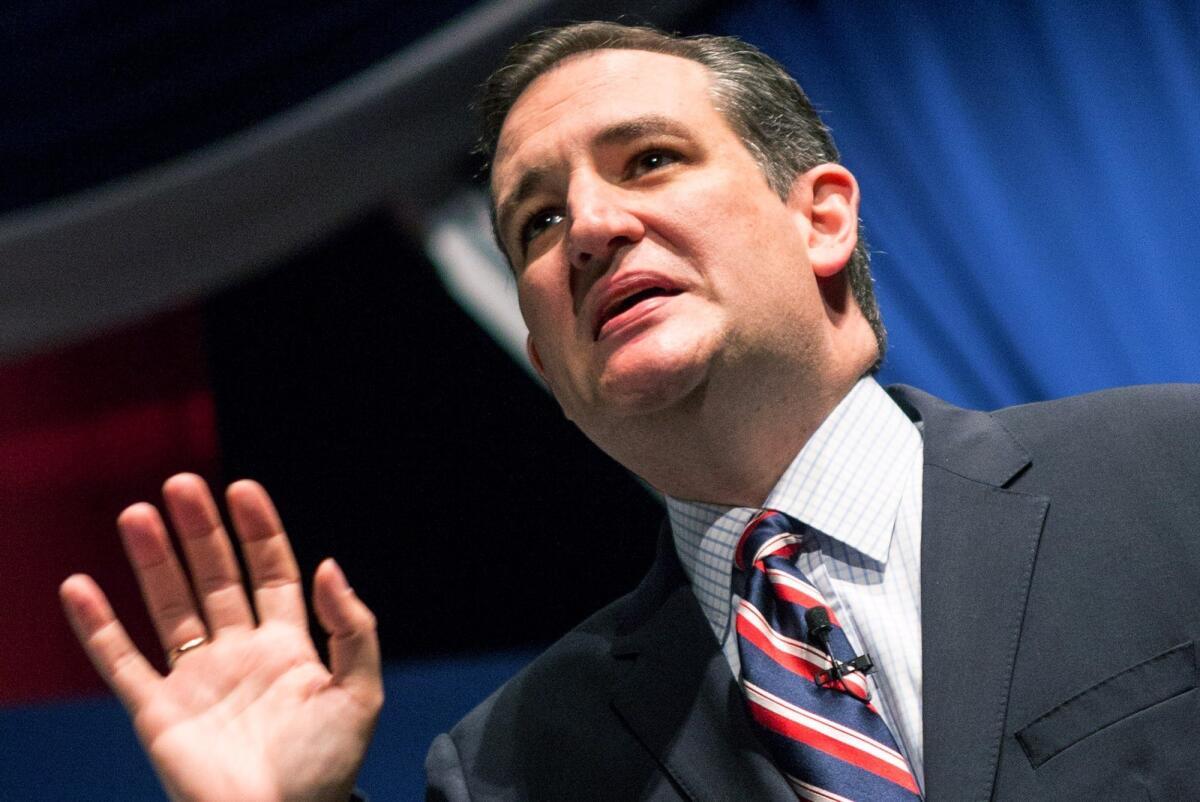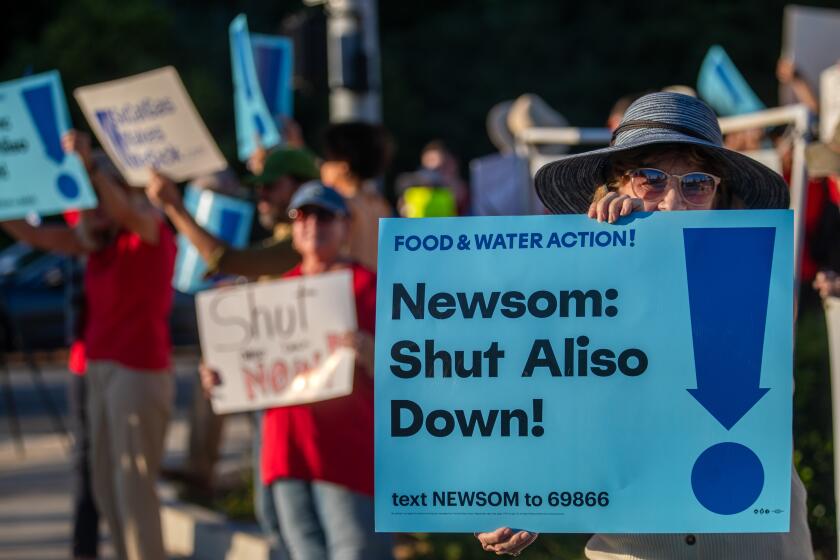Column: Is the American dream really dying?

- Share via
Sen. Ted Cruz of Texas, who’s running for the Republican presidential nomination, issued a stark warning recently.
“Today, for the first time in history, a majority of Americans believe that our kids will have a worse life than we do,” Cruz told conservatives in South Carolina. “That has never been true in the history of America until this instant, right now — maybe the most un-American idea you can imagine.”
Cruz is right that Americans are in a pessimistic mood. An NBC-Wall Street Journal poll last year found that only 21% said they were confident that life would be better for their children’s generation; 76% said the opposite.
But Cruz is wrong on another important point: There’s nothing new about this brand of pessimism. Pollsters have been hearing those sour sentiments from Americans for more than 30 years — ever since they started asking the question.
In 1986, for example, 63% said in a CBS-New York Times poll that they believed the next generation was unlikely to have a bright future — and that was during Ronald Reagan’s presidency, when it was morning in America.
“From 1984 until now, a plurality on almost every survey, and sometimes a majority, has said the next generation would have it worse than this generation,” Samuel L. Popkin, a political scientist at UC San Diego, told me a few years ago.
It turns out that as Americans, we don’t just share the American dream; we share a tradition of worrying that the dream is slipping away. Voters aren’t pessimistic because Barack Obama has been president for six years; they were already pessimistic before Obama entered law school.
And Cruz isn’t the first politician to discover this continent — far from it. Walter F. Mondale sounded some of the same themes when he ran against Reagan in 1984. So did Michael S. Dukakis when he ran against George H.W. Bush in 1988. Bill Clinton did too, in 1992. And so did Mitt Romney, when he ran against Obama in 2012.
All of them aimed their campaign against an incumbent in the White House when the economy was sputtering. All of them encouraged voters to think that the party in power was presiding over the loss of the American dream.
The most striking thing about these polls over the last 30 years is how consistent the pessimism has been. Between 1989 and 2014, no poll ever found a majority that believed the next generation would be better off.
The closest we got to euphoria was in early 2000, the last boom year of the Clinton administration, when a plurality of 44% saw better times ahead.
Last year, in that same CBS-New York Times poll, 23% said they believed the next generation would be better off, 50% said it would be worse off, and 23% said it would fare about the same as the current generation — dispiriting numbers but roughly average for the last quarter-century.
Those overall numbers do, however, conceal some intriguing changes. A generation ago, white Americans were more optimistic than nonwhites about the future. Now those numbers have reversed: African Americans and Latinos see a brighter future for their children than white Americans do.
And people under the age of 30 are more optimistic than older people, despite the daunting job prospects for the millennial generation.
The most pessimistic? Older people, white people and Republicans, with tea party supporters in the lead. The defining feature of the tea party may well be pessimism about the nation’s future.
The sources of pessimism appear to have shifted, Popkin told me this week. “In the past, it was more about our place in the world,” including fear that “Japan and China were going to be ahead of us,” he said. But now, he said, some of the deepest concerns “are cultural in a broad sense … [including] the college-non-college wage gap and the whole social-gender-race shift.”
There’s one other surprise in those polls that Cruz should note: Amid all their pessimism, Americans still feel good about a few things.
They still believe, by a large majority, that there is such a thing as an American dream, which most define not as making a lot of money but as achieving financial security and having a successful marriage with children.
Even though they think the country is heading for a troubled future, most think they will succeed themselves — and that their own children will too. (Evidence, perhaps, that parenting is the ultimate act of optimism.)
“Most people think the American dream is harder to attain … but they still believe they can do it,” Karlyn Bowman, a public opinion expert at the conservative American Enterprise Institute, told me.
Notice anything about that list of candidates I mentioned earlier — Mondale, Dukakis, Clinton and Romney? Most of them — the ones who focused most on doom and gloom — lost.
Americans may feel pessimistic about the country as a whole, but they want their president to be an optimist, or at least to sound like one.
Cruz’s larger mistake wasn’t getting the polling history wrong; it was his focus on fear instead of hope. “We are at the edge of a precipice,” he said. “We either pull this country back or we risk losing the greatest country in the history of the world.”
I suspect he’ll soon discover that focusing on loss isn’t a winning strategy.
Twitter: @doylemcmanus
Follow the Opinion section on Twitter @latimesopinion and Facebook
More to Read
A cure for the common opinion
Get thought-provoking perspectives with our weekly newsletter.
You may occasionally receive promotional content from the Los Angeles Times.











